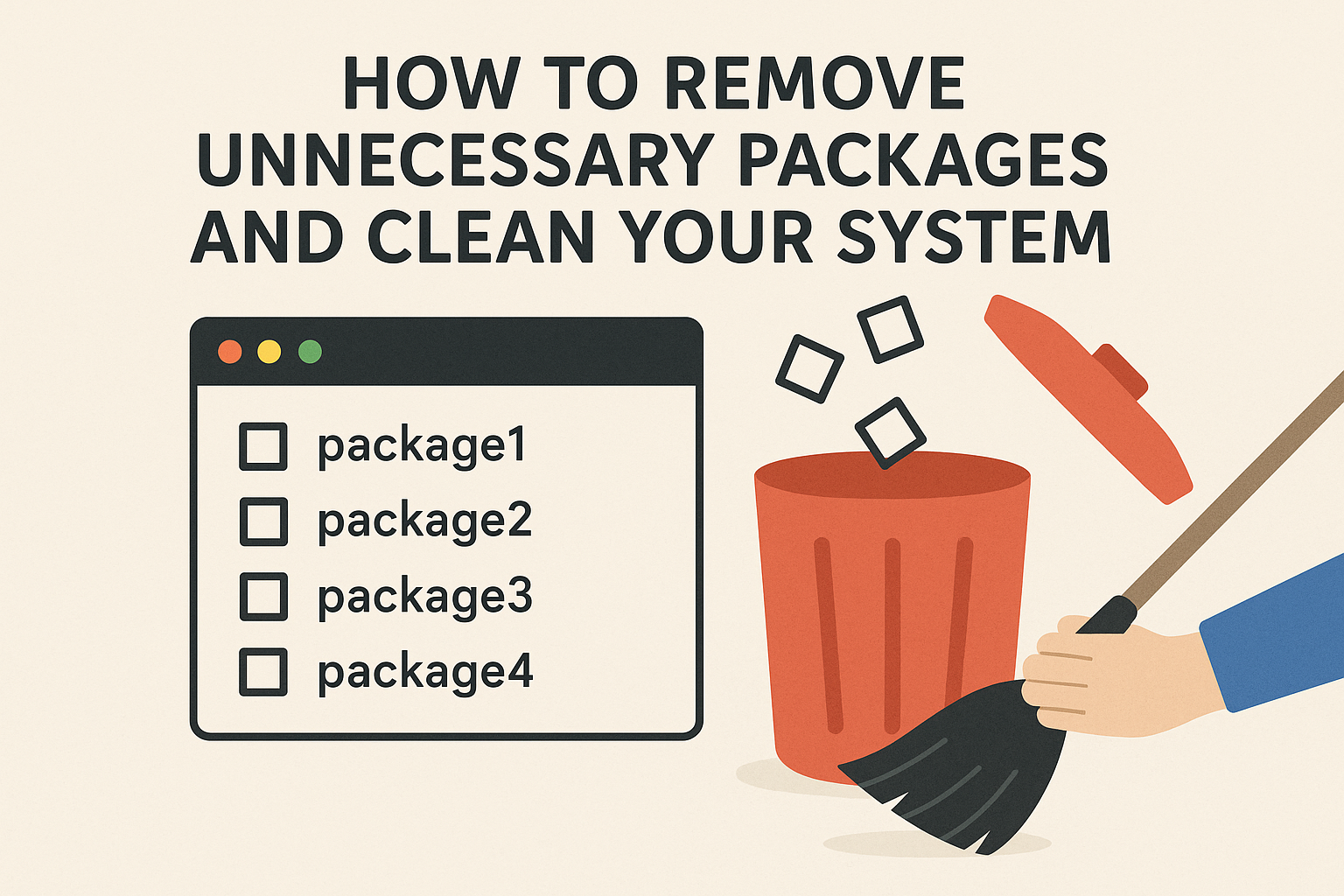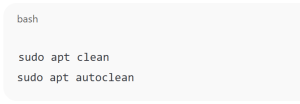
How to Remove Unnecessary Packages and Clean Your System
Over time, operating systems accumulate unnecessary packages, temporary files, and dependencies that are no longer needed. This can slow down your system and take up valuable disk space. Fortunately, most Linux distributions provide powerful tools to remove clutter and keep your system running smoothly.
Step 1: Update Package Lists
Before cleaning, it’s always best to update your package index:
sudo apt update # For Debian/Ubuntu
sudo dnf check-update # For Fedora/RHEL
sudo yum check-update # For CentOS
Step 2: Remove Unused Packages
Unnecessary packages, also known as “orphans,” can be removed with:
- Debian/Ubuntu (APT)

sudo apt autoremove
- Fedora (DNF)

sudo dnf autoremove
- CentOS/RHEL (YUM)

sudo yum autoremove
Step 3: Clean the Package Cache
Package managers store downloaded files in cache, which can grow large over time.
- APT

sudo apt clean
sudo apt autoclean
- DNF

sudo dnf clean all
- YUM

sudo yum clean all
Step 4: Remove Old Kernels (Optional)
Linux may keep multiple old kernels. You can safely remove older ones if they are not needed. Example for Ubuntu:
sudo apt --purge autoremove
Step 5: Use System Cleaning Tools
For a deeper clean, you can install system tools like:
- BleachBit (GUI and CLI cleaner)
- Stacer (System optimizer and monitoring tool)
Conclusion
By regularly removing unused packages and cleaning caches, you keep your system lean, save storage space, and ensure smoother performance. A monthly cleanup is often enough for most users
How to Remove Unnecessary Packages and Clean Your System (F.A.Q)
Will autoremove delete important files?
No, it only removes packages that are no longer required by any installed software.
How often should I clean my Linux system?
Once a month is usually enough, unless you install and remove packages frequently.
What’s the difference between apt clean and apt autoclean?
apt clean removes all cached packages, while apt autoclean only deletes outdated ones.
Can cleaning the system improve performance?
Yes, it frees up disk space and reduces system clutter, which can indirectly improve performance.

